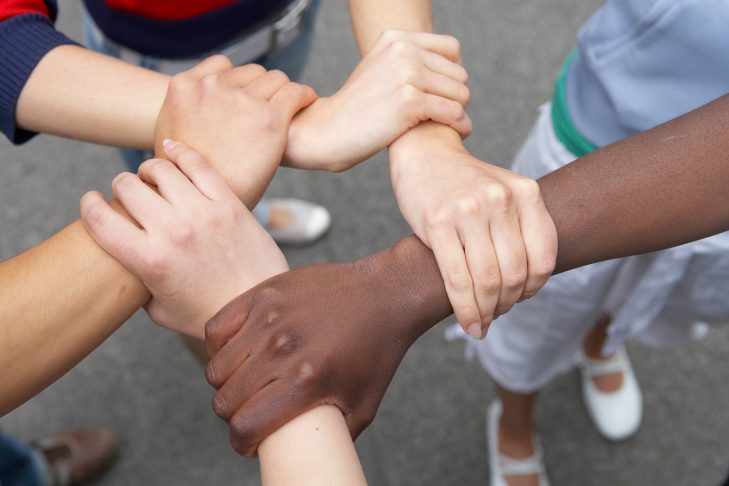I’m familiar with a story…
The rabbis tell a story of a small village, a village so small that only the halachic minimum of 10 people would attend services every day. As time passed and days turned into months, these 10 villagers would come without fail because each of them knew the others could not complete the service if they didn’t show up. One day, a traveler came to the village and began to also attend minyan every day, raising the total to 11. Suddenly, the village synagogue, which once had a consistent service every day, had trouble finding a minyan. How? Those people who once showed up without fail would now take one, two, or three days off during the week. People who would come consistently abandoned their obligation because now each individual person was no longer needed. When I first heard this story, I wondered how we are able to value the single entity as well as the community. How do we build and strengthen our community without destroying the individuality of those who shape it?
The verb “to pray” in Hebrew is lehitpalel. The prefix “lehit” also indicates that it is a reflexive verb, meaning that prayer in Hebrew is something you do to or for yourself. How ironic is it that we need a group of people for one person to pursue an action for him or herself? How beautiful is it that a synagogue could comprise the nine most learned people of their age yet when one simple Jew walks into the synagogue, that person brings in the power to fully complete the service?
Each of us at BJEP has shown our own unique ability to demonstrate the power of the individual within a larger classroom. At BJEP, when students become part of the community, they don’t just join it; they play an active role in building it too. Over this past year at BJEP we have done just that. The boisterous third graders that I began teaching in the fall of 2019 are now rising sixth graders, positioned to lead the community next year with their passion and kavanah (spirit). These were students who asked insightful questions, challenged each others’ worldview, and did math on weekends in order to convert Israeli shekels into U.S. dollars. It’s been my pleasure to witness these students help each other, explain challenging concepts, and strive for a deeper understanding of Judaism these past few years.
This past year at BJEP as we learned the words to Lecha Dodi, a prayer recited to greet Shabbat, we sang the following:
Boi beshalom ateret ba’alah,
gam besimcha uvetzahalah
toch emunei am segulah,
boi kalah, boi, kalah;
Come in peace anointed queen [Shabbat],
in happiness and rejoicing
amongst a faithful precious people
In Lecha Dodi we not only welcome the Shabbat bride but, more importantly, each other. Each Friday night, we once again stress the point that without saying “Boi,” “come,” to each other, we cannot begin our tefillah, our prayer, and Shabbat cannot yet begin. In the words of Lecha Dodi, we emphasize that we are welcoming Shabbat, the individual, to join our collective am, or people. Regardless of your religious beliefs, modern Judaism accents the concept that in order to connect to God, we first must connect to each other. Prayer, like the type of learning we do here at BJEP, requires a community of people who support and challenge you.
The rabbis tell a story of a small village whose community fell apart as it grew. At BJEP, we find that the opposite is true: Building and growing community only makes us more connected and more filled with passion and kavanah (spirit). Over the course of this past year at BJEP, by celebrating both the individual and the community, we have each demonstrated our own unique ability to prevail in not just sustaining, but in building our community.
Simmy Decker, a Brandeis University 2022 graduate, majored in public health, was a member of Manginah, Brandeis University’s premier, coed, Jewish a cappella group, and taught at BJEP for three years, most recently leading its fifth grade classroom.
BJEP, the Jewish Sunday school program on the Brandeis campus, is crafted to be a catalyst for growth and development. Learn more about what we have planned for the 2022-2023 school year.
This post has been contributed by a third party. The opinions, facts and any media content are presented solely by the author, and JewishBoston assumes no responsibility for them. Want to add your voice to the conversation? Publish your own post here. MORE


